The content of the article
The birth of kittens is a very important moment for a cat, because at this time the pet is experiencing a powerful load of both physical and psychological order.
Basic information
The cat has poured over, but this does not mean that everything is finished - the owner should see if the mother washed all the kittens and whether they managed to taste the mother's milk, or to be more precise - colostrum. It is very important that the kittens take a sip of colostrum, as the mother drink contains many trace elements, vitamins, antibodies and minerals. Colostrum forms immunity in kittens. Their own immune system in newborns will not appear soon, which means that if the kittens do not suck up the milk of milk in full, they will soon get sick.
After the newly-born mom feeds her children, she will wish to taste the milk herself.But there is a small problem: beginners think that the cat does not want to eat, because it does not go to the bowl. In fact, instinctively the cat can not throw their offspring, and therefore not able to go eat. The best option would be to place bowls of milk and food close to the offspring.
I would also like to note that many cats do not eat anything after giving birth - they are so tired that they simply cannot eat anything. Do not worry, the cat will have a rest and her appetite will definitely appear, and the animal will eat three times as much as its norm, since it needs to feed not only itself, but also its newborn children.
Nutritional characteristics of the mother and kittens
After 60 - 70 hours after childbirth, an increase in appetite occurs, the pet begins to drink and eat everything that is offered to it.After a week, the appetite returns to normal, and after a month it even decreases, as the kittens begin to consume some food on their own.
The cat went on a hunger strike - what happened to her after giving birth?
A common cause of this case is associated with small inflammations in the genital tract and uterus. This happens because of heavy births, tears and other wounds appear on the mucous membranes of the genitals. The cat is in pain and cannot eat because of stress. The most dangerous thing is if the cat has inflammation of the uterus or so-called endometritis. When this inflammation appears fever, which significantly affects the state of the pet. With moderate inflammation, it is possible that the cat will recover in a few days.
In some cats, after childbirth, nervous behavior is noted, they eat in spurts, as they constantly worry about their kittens. In this case, you can not exacerbate the situation - it is necessary to temporarily isolate all pets from the cat and her offspring, and also not to invite outside people to "look at the kittens." At first, only the person to whom the cat trusts can be near the cat.
When is it worth sounding the alarm?
Eating the animal not only lost appetite after childbirth, but also showed strange symptoms - should be referred to the veterinarian.
- Bleeding. Scientifically, hemorrhages are called hemorrhages. If a cat gives off a purple color after giving birth, then this is an absolutely normal, physiological phenomenon. By the way, for this reason, the cat needs to lay the laundry, which is not a pity to slap in blood. Red-brown discharge is the norm if there is no smell of rot. Otherwise, a visit to the vet is indispensable. There are cases when burgundy or bright red blood clots are secreted from the genital organs of an animal - this is very bad, as these signs indicate intrauterine bleeding. Even small intrauterine bleeding leads to anemia and other unpleasant aspects, for example, the cat begins to eat little or refuses to eat completely. The condition of the animal with anemia will only worsen, so the sooner you get to the vet, the higher the chances that your cat will be all right.
- Generic complications. Small kittens are surrounded by a so-called afterbirth or a baby seat in the womb.This afterbirth should depart after delivery or during. The cat gave birth, and the last in an hour should be gone. But, if this did not happen, then this is a bad sign, since the delay of the afterbirth in cats is the risk of getting inflammation. Afterbirth, remaining in the uterus, receives a dose of bacteria during labor and begins to rot. Naturally, the cat starts to smell very bad, sometimes the smell is on the whole house. Pathology is easy to determine not only by smell, but also by the presence of green-yellow or purple-gray flowers on the genitals of the cat.
- With the strongest intoxication, the playfulness of the pet disappears, it becomes very sluggish and passive. Alas, such symptoms may be associated with an uterine rupture in an animal. This happens during very difficult childbirth in conjunction with poor management of obstetrics. In this situation, “normal” endometritis does not get rid of, these breaks lead to peritonitis. A cat in this state feels terrible, it ceases to care for itself and its offspring. Her milk suffers from this ailment, it becomes toxic.
- Chest problems in cats. Inflammation of the mammary glands or mastitis often occurs through the fault of adult kittens, which, instead of drinking milk from a bowl, continue to lap up the milk from the mother's breasts.Their sharp teeth leave miniature sores on the nipples of the cat, and as a result the infection of the mammary glands occurs, they swell. In addition, mastitis occurs with endometritis, since pathogenic microflora can easily get into the mammary glands of the animal. Mastitis can also develop in mothers with large amounts of milk.
- Hypocalcemia. This is a severe pathology that occurs after giving birth, when a cat has a negligible amount of calcium in the blood. This happens because of the connivance of the owners, who fed the cat poor-quality food or gave food with a minimum amount of nutrients. It is also possible that the cat was born weak or she has a bad appetite since childhood, as a rule, such a disease is inherent in thin cats. Symptoms of hypocalcemia - trembling, poor walking, nervousness, fast breathing. What to apply? In this situation will require the help of a veterinarian.
- Lipodisum as a result of starvation of a cat. If your pet is too thin and does not take food during the day, then lipid lipid can be expected. If the cat did not eat well before giving birth or after them the appetite did not appear, then be sure to consult with a veterinarian!
The most important thing is to help your pet in time. We do not recommend starting self-treatment, as the pet's body is seriously different from ours, and besides, any problem requires an individual approach that only a competent specialist can provide.
Video: why does a cat refuse to eat?

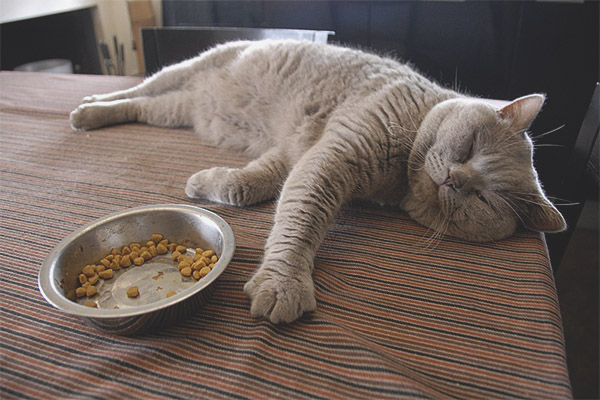
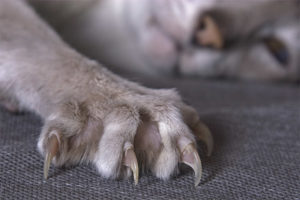
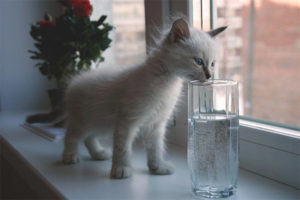
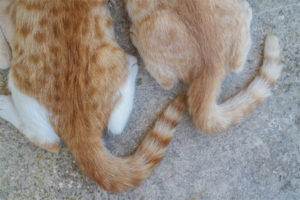
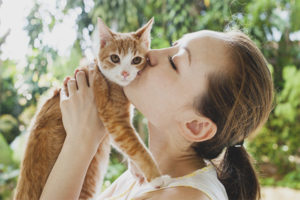
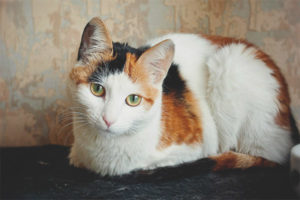
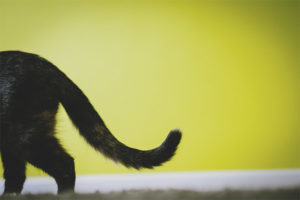
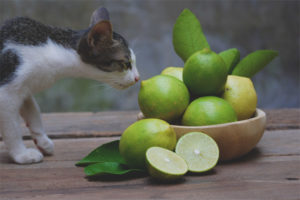
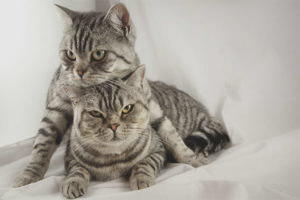
To send